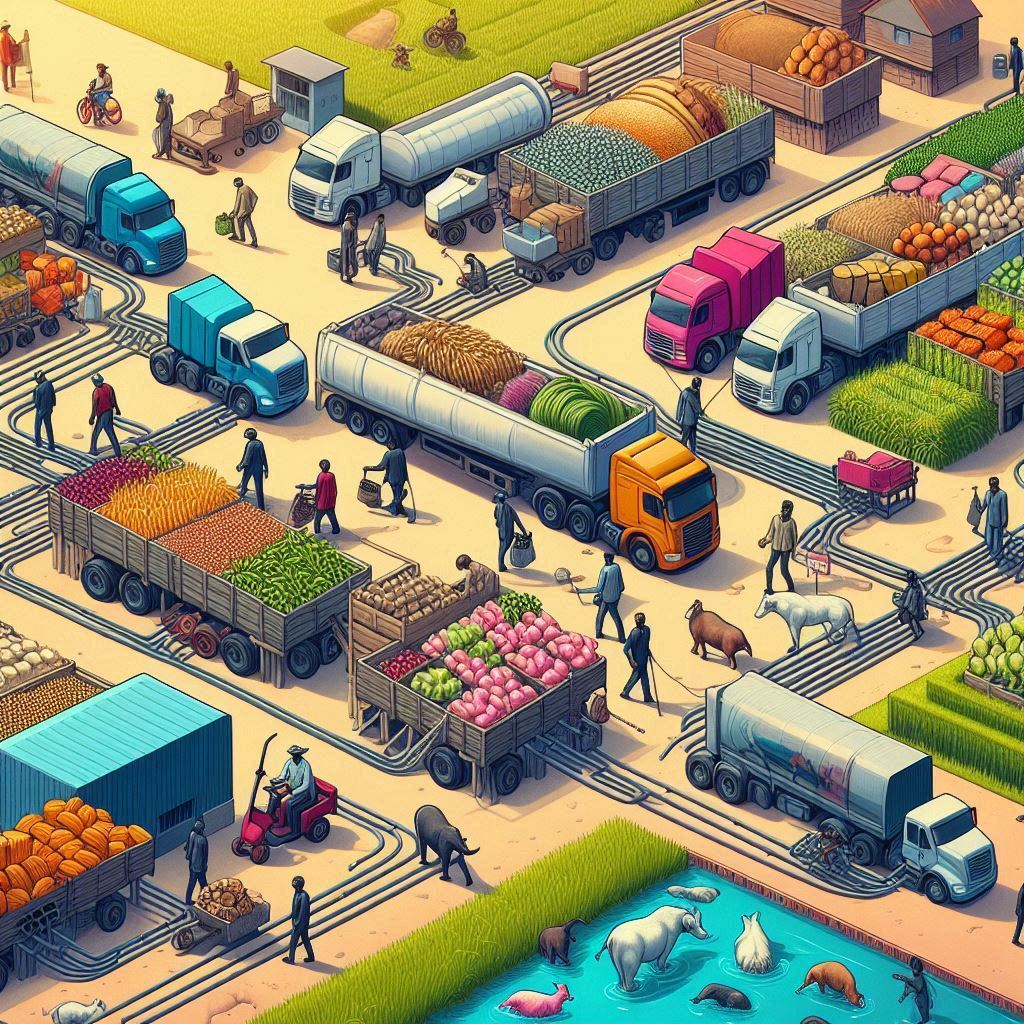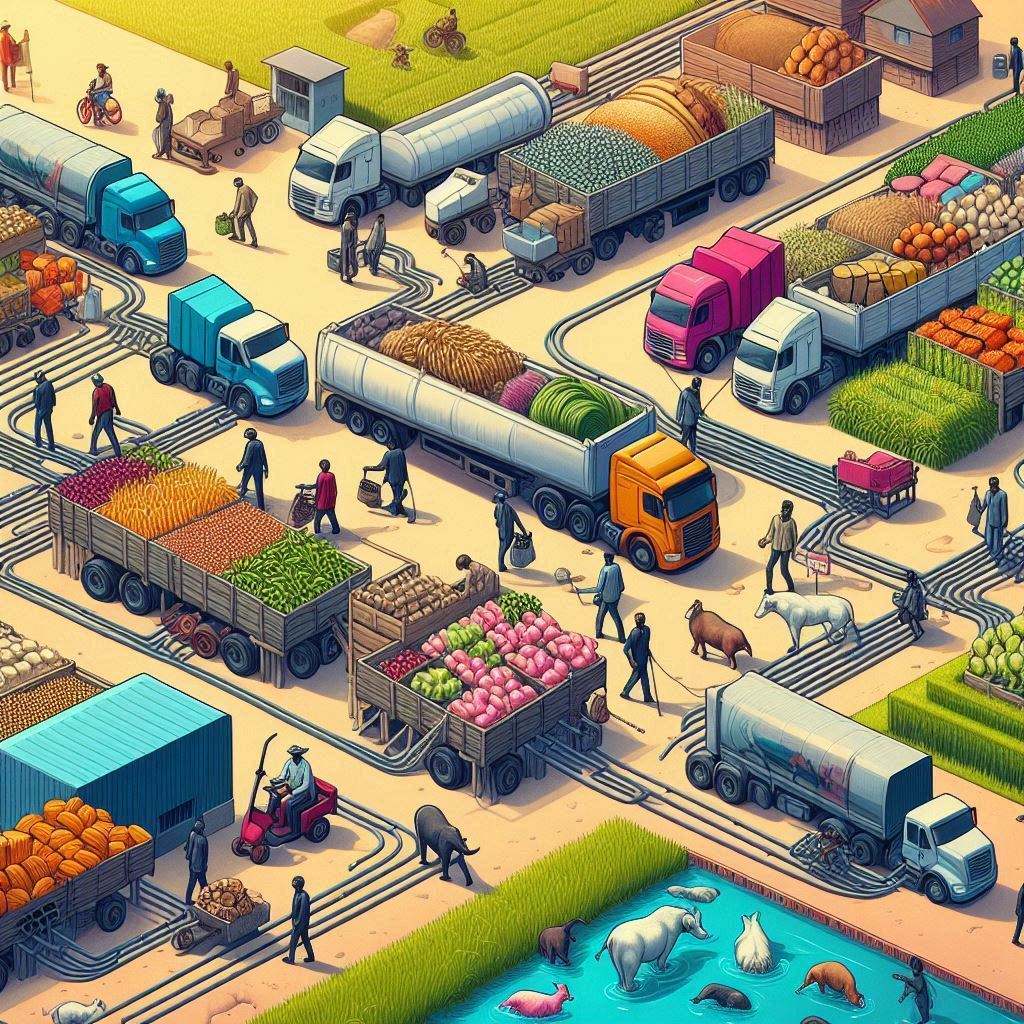
WORST CASE SCENARIO: DEALING WITH SUPPLY CHAIN DISRUPTIONS IN AGRIBUSINESS
Keywords: Agribusiness, Supply Chain Disruptions, Risk Management, Resilience Building
Supply chain disruptions can spell disaster for agribusinesses, particularly in Africa, where infrastructure challenges and market volatility often compound the problem. When supply chains break down, the ripple effects can be devastating, leading to financial losses, food insecurity, and reduced farmer livelihoods. This article delves into the worst-case scenarios of supply chain disruptions, with specific examples from across Africa, and provides actionable strategies to mitigate these risks.
The Reality of Supply Chain Disruptions
Supply chain disruptions in agribusiness can arise from various factors, including natural disasters, political instability, logistical failures, and global pandemics. These disruptions can lead to delayed deliveries, increased costs, and spoiled produce, severely impacting both farmers and consumers.
Case Studies of Supply Chain Disruptions in Africa
1. COVID-19 Pandemic (Africa-wide)
The COVID-19 pandemic brought unprecedented challenges to global supply chains, and Africa was no exception. Lockdowns, movement restrictions, and port closures disrupted the flow of goods, leading to significant agricultural losses.
Impact Highlights:
– Food Waste: Due to transportation restrictions, many farmers were unable to get their produce to market, leading to massive food wastage. In Nigeria, reports indicated that farmers lost millions of naira worth of perishable goods.
– Price Volatility: The disruption caused price spikes for essential commodities. In Kenya, maize prices surged, affecting both consumers and farmers who struggled with input costs.
– Economic Losses: The pandemic led to substantial economic losses in the agricultural sector, with smallholder farmers bearing the brunt of the impact.
2. Political Instability in Ethiopia
Ethiopia, one of Africa’s largest coffee producers, has faced significant supply chain disruptions due to political instability and conflict. The Tigray conflict, which began in November 2020, has severely impacted agricultural production and distribution.
Impact Highlights:
– Export Declines: Coffee exports, a major revenue source for Ethiopia, dropped sharply due to disruptions in transportation and logistics.
– Farmers’ Livelihoods: Many farmers in the Tigray region were unable to harvest or transport their crops, leading to income loss and food insecurity.
– Market Access: The conflict hindered farmers’ access to markets, exacerbating the challenges of selling their produce and purchasing necessary inputs.
3. Natural Disasters in Mozambique
Mozambique frequently faces natural disasters such as cyclones and floods, which have devastating effects on agricultural supply chains. Cyclone Idai in 2019 is a stark example of how natural disasters can disrupt agribusiness.
Impact Highlights:
– Infrastructure Damage: Cyclone Idai caused extensive damage to roads and bridges, hindering the transportation of agricultural goods.
– Crop Destruction: The cyclone destroyed vast swathes of farmland, leading to significant crop losses and reduced food availability.
– Humanitarian Crisis: The disaster triggered a humanitarian crisis, with many rural communities facing severe food shortages and economic hardship.
Strategies to Mitigate Supply Chain Disruptions
1. Diversification of Supply Chains
Diversifying supply chains can reduce dependency on a single source or route, mitigating the risk of disruption. Agribusinesses should establish multiple suppliers and logistical pathways to ensure continuity in the face of disruptions.
2. Investment in Infrastructure
Investing in robust infrastructure, such as roads, storage facilities, and communication networks, can enhance the resilience of supply chains. Governments and private sectors should collaborate to improve infrastructure that supports agricultural logistics.
3. Adoption of Technology
Leveraging technology can significantly improve supply chain management. Digital platforms, real-time tracking systems, and data analytics can help agribusinesses monitor and respond to disruptions swiftly. For instance, platforms like Twiga Foods in Kenya use mobile technology to connect farmers with urban markets, ensuring efficient distribution.
4. Building Resilience through Training
Training farmers and supply chain stakeholders on risk management and resilience strategies can empower them to navigate disruptions effectively. Programs focused on best practices in storage, transportation, and market access can be invaluable.
5. Strategic Partnerships
Forming strategic partnerships with stakeholders across the supply chain can enhance collaboration and resource sharing. Partnerships with financial institutions, logistics companies, and technology providers can provide the necessary support to weather disruptions.
Conclusion
Supply chain disruptions pose a significant threat to agribusinesses across Africa, but with proactive strategies, these challenges can be mitigated. By diversifying supply chains, investing in infrastructure, adopting technology, providing training, and forming strategic partnerships, agribusinesses can build resilience and ensure continuity in the face of adversity.
For agribusiness entrepreneurs in Nigeria and the rest of Africa, understanding and preparing for supply chain disruptions is crucial to sustaining operations and protecting livelihoods. The lessons from the COVID-19 pandemic, political instability in Ethiopia, and natural disasters in Mozambique highlight the need for comprehensive risk management and resilience-building strategies.
Feel free to share your experiences and strategies in the comments below. Let’s work together to create a more resilient agribusiness sector in Africa.


